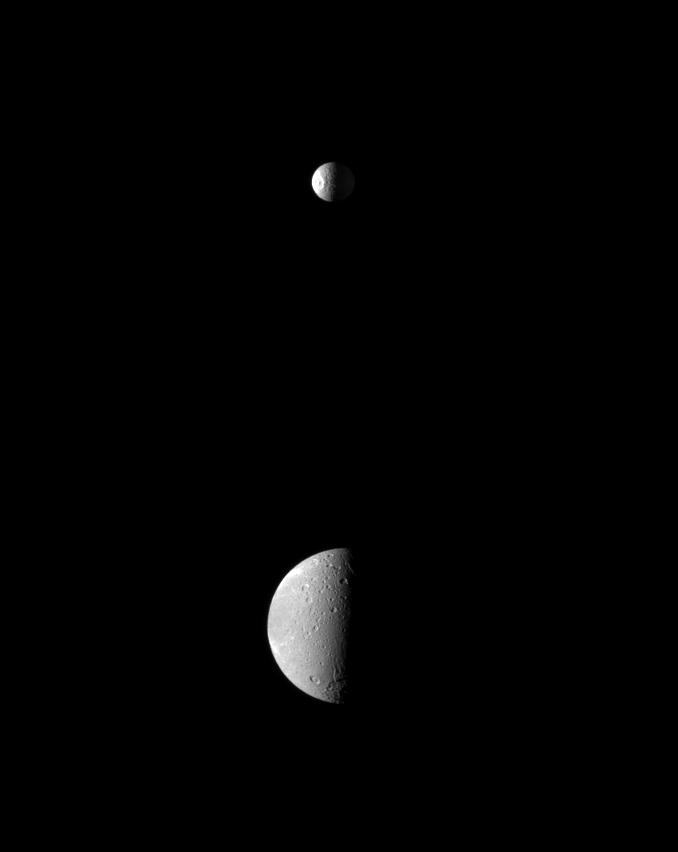Upstart Moon

| PIA Number | PIA12679 |
|---|---|
| Language |
|
The smaller moon Mimas upstages the larger moon Dione as the dramatic Herschel Crater is spotlighted on Mimas in this Cassini spacecraft view.
Herschel Crater is about 130 kilometers, or 81 miles, wide and covers a significant part of Mimas (396 kilometers, or 246 miles across) at the top of this picture. Smaller craters are visible on Dione (1,123 kilometers, or 698 miles across) in the lower portion of this image.
Because of the particular viewing geometry here, sunlight illuminates the leading hemisphere of Mimas on the left, and light reflected off Saturn dimly lights the Saturn-facing side of Mimas on the right. Lit terrain seen on the left of Dione is on the anti-Saturn side of that moon.
The image was taken in visible red light with the Cassini spacecraft narrow-angle camera on March 23, 2010. The view was obtained at a distance of approximately 1.6 million kilometers (994,000 miles) from Mimas and at a sun-Mimas-spacecraft, or phase, angle of 87 degrees. The view was obtained at a distance of approximately 1.2 million kilometers (746,000 miles) from Dione and at a sun-Dione-spacecraft, or phase, angle of 87 degrees. Image scale is 10 kilometers (6 miles) per pixel on Mimas and 7 kilometers (4 miles) per pixel on Dione.
The Cassini-Huygens mission is a cooperative project of NASA, the European Space Agency and the Italian Space Agency. The Jet Propulsion Laboratory, a division of the California Institute of Technology in Pasadena, manages the mission for NASA's Science Mission Directorate, Washington, D.C. The Cassini orbiter and its two onboard cameras were designed, developed and assembled at JPL. The imaging operations center is based at the Space Science Institute in Boulder, Colo.
For more information about the Cassini-Huygens mission visit http://saturn.jpl.nasa.gov . The Cassini imaging team homepage is at http://ciclops.org .
Credit: NASA/JPL/Space Science Institute
